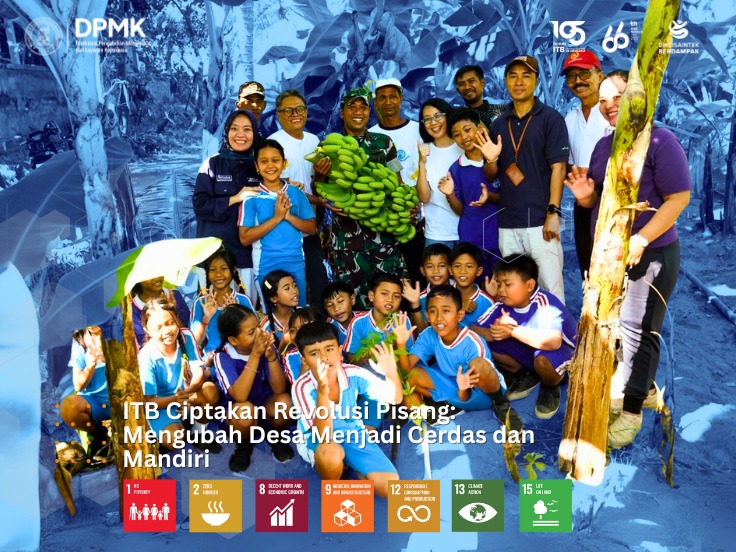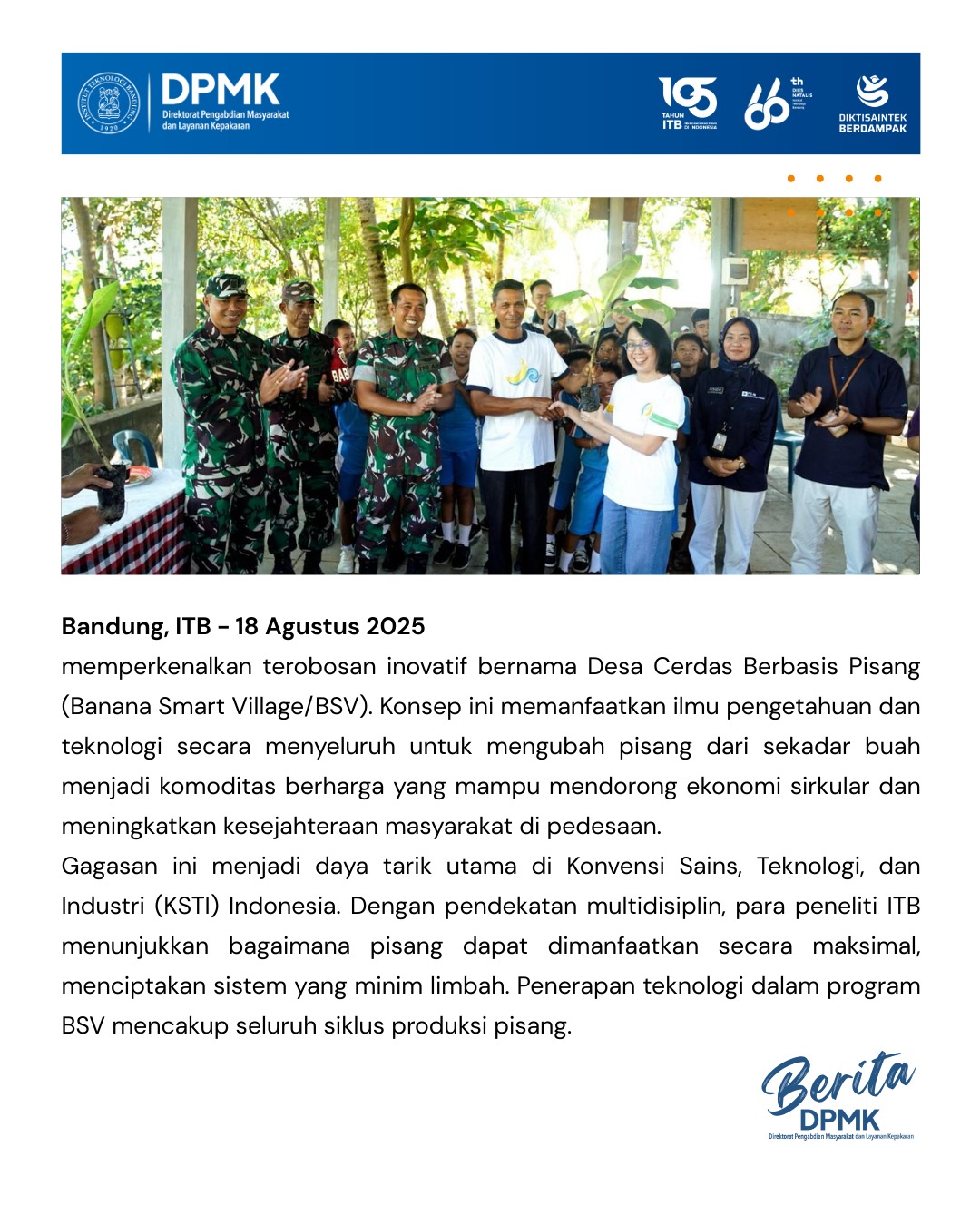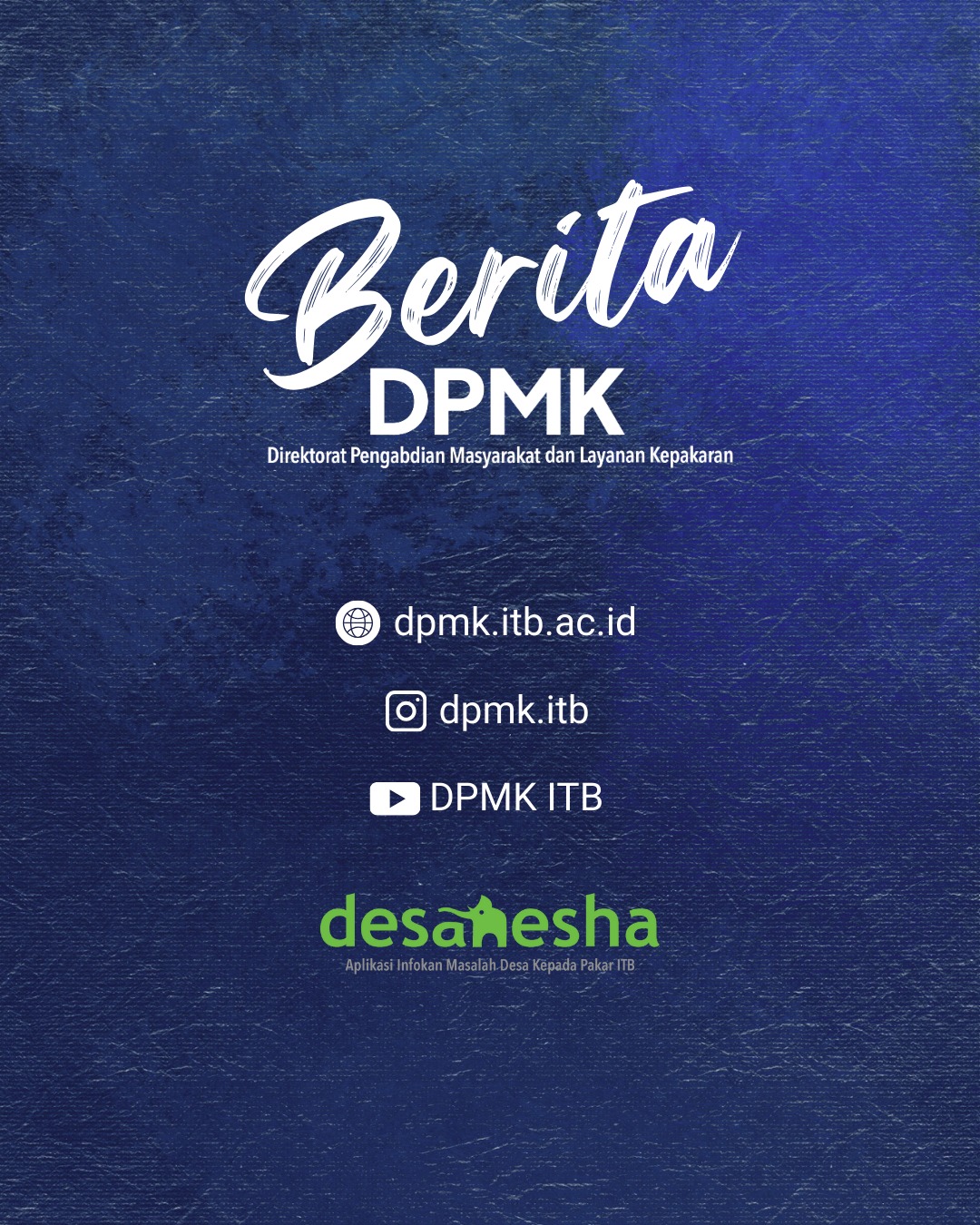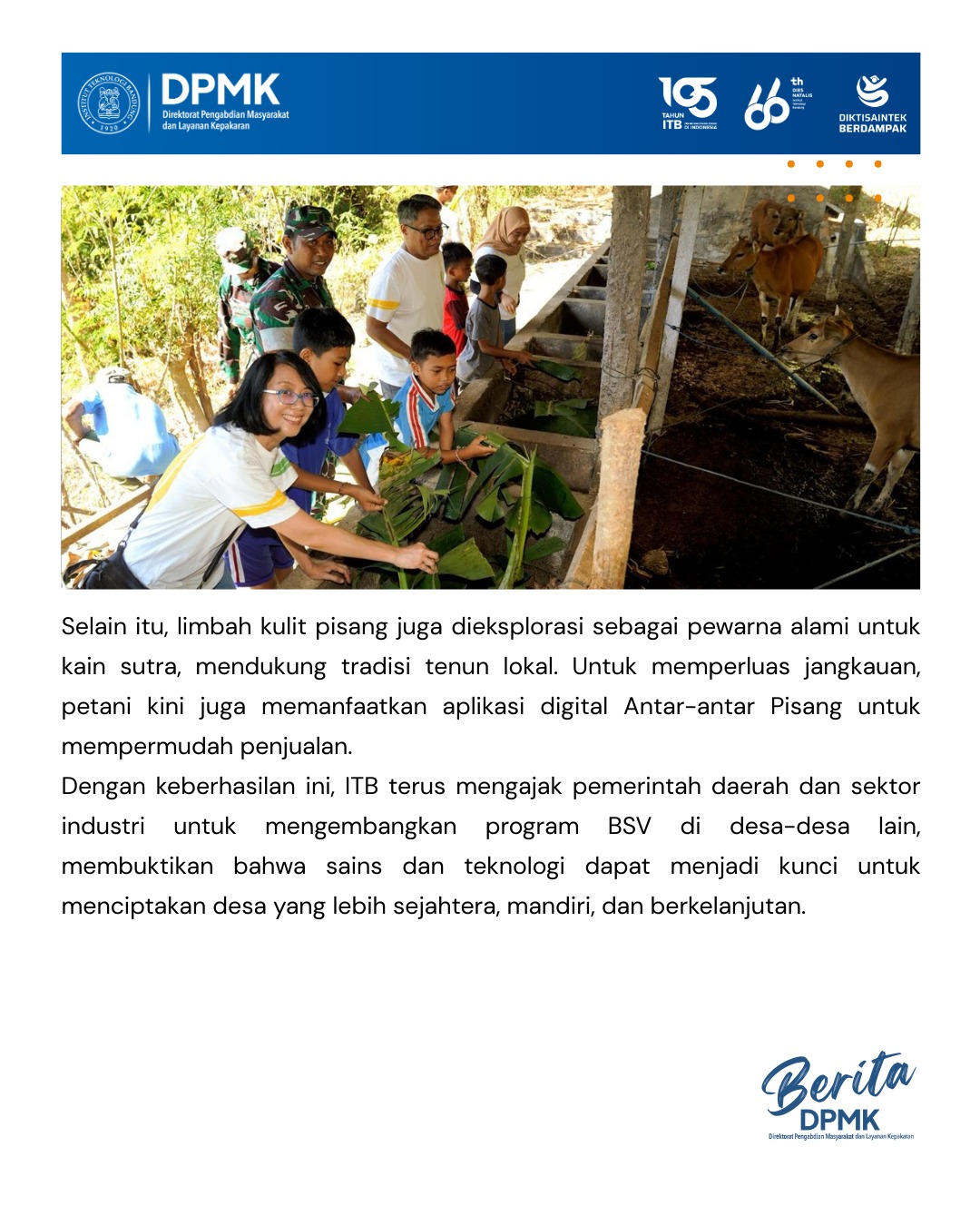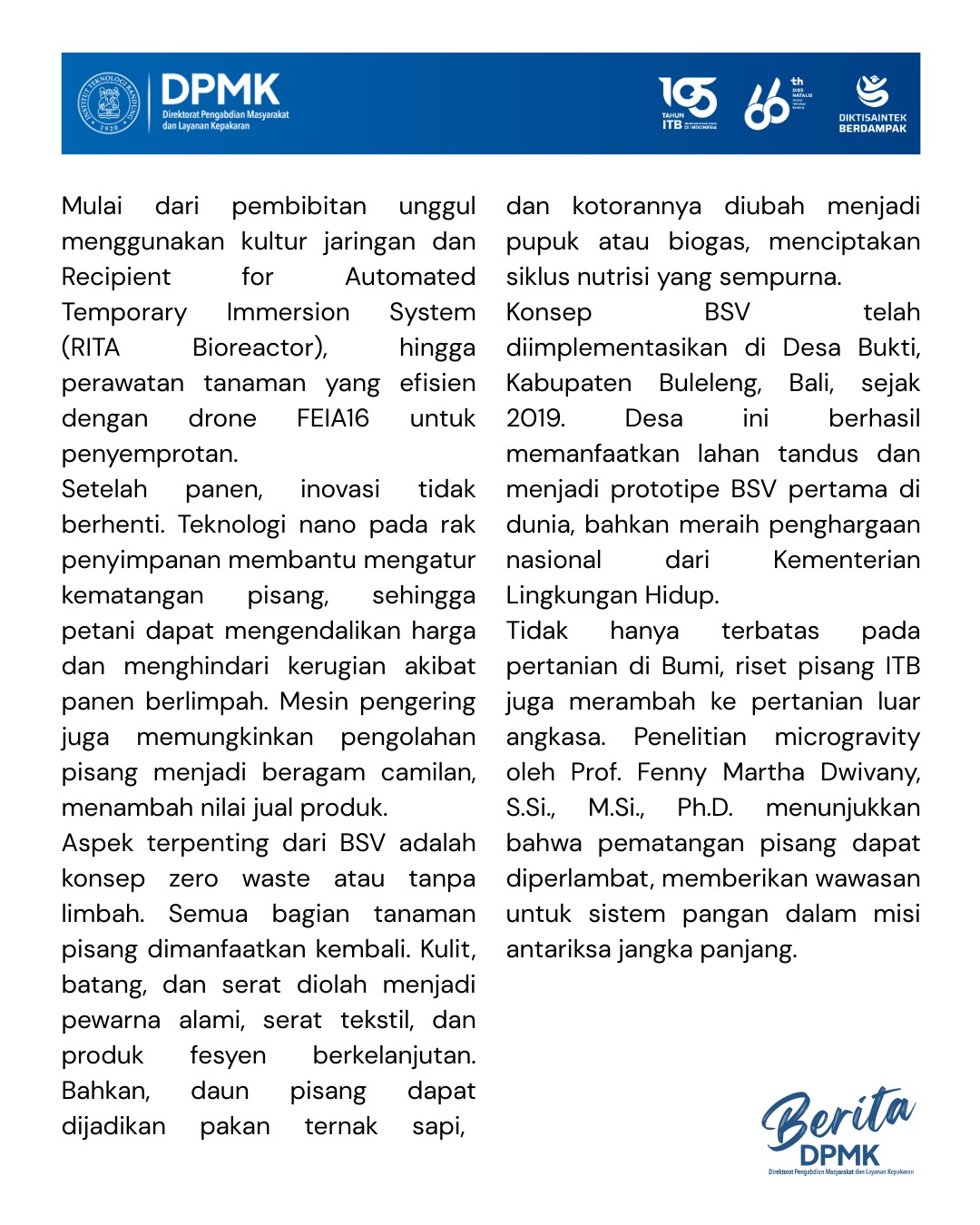BANDUNG - The Bandung Institute of Technology (ITB) introduced an innovative breakthrough called the Banana-Based Smart Village (BSV). This concept leverages science and technology comprehensively to transform bananas from mere fruit into a valuable commodity capable of driving the circular economy and improving the well-being of rural communities.
This idea became the main attraction at the Indonesian Science, Technology, and Industry Convention (KSTI). With a multidisciplinary approach, ITB researchers demonstrated how bananas can be maximized, creating a system with minimal waste. The application of technology in the BSV program covers the entire banana production cycle. From superior seedling production using tissue culture and the Recipient for Automated Temporary Immersion System (RITA Bioreactor), to efficient plant care with the FEIA16 drone for spraying.
After the harvest, innovation doesn't stop. Nanotechnology in storage racks helps regulate banana ripening, allowing farmers to control prices and avoid losses from abundant harvests. The drying machine also allows for the processing of bananas into a variety of snacks, increasing the product's selling value.
The most important aspect of BSV is the concept of zero waste. All parts of the banana plant are reused. The skin, stem, and fibers are processed into natural dyes, textile fibers, and sustainable fashion products. In fact, banana leaves can be used as cattle feed, and their manure can be converted into fertilizer or biogas, creating a perfect nutrient cycle.
The BSV concept has been implemented in Bukti Village, Buleleng Regency, Bali, since 2019. This village successfully utilized barren land and became the world's first BSV prototype, even receiving national recognition from the Ministry of Environment.
Not limited to agriculture on Earth, ITB's banana research also extends to space agriculture. Microgravity research by Prof. Fenny Martha Dwivany, S.Si., M.Si., Ph.D. shows that banana ripening can be slowed, providing insights for food systems in long-term space missions. Additionally, banana peel waste is also being explored as a natural dye for silk fabric, supporting local weaving traditions. To expand their reach, farmers are now also utilizing the digital application Antar-antar Pisang to facilitate sales.
With this success, ITB continues to invite local governments and the industrial sector to develop the BSV program in other villages, proving that science and technology can be the key to creating more prosperous, independent, and sustainable villages.
#ITBInnovation #SmartVillage #CircularEconomy #AgriculturalTechnology #SDGs #SDG1 #SDG2 #SDG8 #SDG9 #SDG12 #SDG13 #SDG15
reference :
https://dpmk-link.short.gy/QExjLK
https://youtu.be/EA9Tf2KYV1E
